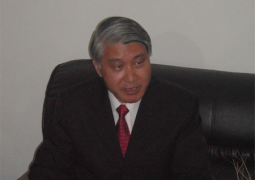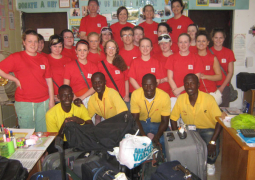A couple of phrases which are commonly tossed around quite frequently are "Children are the leaders of tomorrow" and "Children are our future." Both pretty much mean the same thing, kids are a fundamentally important and integral part of life and everything that it entails.
It is also universally proven that the upbringing of an infant is what shapes up their lives and determines what kind of adults they will grow up to be. Now, it is no secret that over the years, a lot of innocent children have been exposed to a lot, some good, others detrimentally bad, with war, marginalization, bullying and emotional trauma, hunger and malnutrition and the illness attributed to poor care giving being just a few.
We have all at one point in time or another come into contact either physically, or via way of multi-media communicative devices an or multiple individuals we have deemed, "different", "weird", "strange" or termed unsociable. Some of these people are social rejects who are feared or discriminated against because they don’t fit our bill of acceptability. One such people are those whom are autistic, victims of a childhood condition left untreated or incapable of being diagnosed or treated.
Recently, Autism (a disorder which until a few years back was not considered to be worthy of further research apparently) has received prominence in the area of child issues. Autism is a disorder of neural development characterized which impairs the social interaction capabilities and communication abilities of an infant, These include restricted and repetitive behavioral tendencies such as Hand flapping, making sounds, head rolling, or body rocking.
Compulsive behavior such as arranging objects in stacks or in a particular order Resistance to change.
Ritualistic behavior which involves doing the same things the same way all the time with no room for change. This includes eating and the manner of dress
Restricted behavior – does not explore like an average infant and possesses no inquisitive gene which is a norm in infants, toddlers and young kids.
Autism is one of three recognized disorders in this spectrum, the other two being Asperger syndrome, (which lacks delays in cognitive development and language), and Pervasive Developmental Disorder-Not Otherwise Specified (which is diagnosed when the full set of criteria for autism or Asperger syndrome are not met).
Autistic infants show less attention to social stimuli, smile and look at others less often, and respond less to their own name. Autistic toddlers differ more strikingly from social norms, with frequent cases where they have less eye contact and turn taking, and do not have the ability to use simple movements to express oneself, such as the deficiency to point at things.
They do not develop enough natural speech to meet their daily communication needs Differences in communication may be present from the first year of life, and may include delayed onset of babbling, unusual gestures, diminished responsiveness, and vocal patterns which develop into less frequent communication as they get older.
Some autistic individuals show unusual abilities, ranging from splinter skills such as the memorization of intricate games or puzzles to the extraordinarily rare talents of prodigious autistic savants. A lot of them show superior skills in perception and attention, relative to the general population. Sensory abnormalities are found in nine out of ten of those with autism, and are considered core features by some, although there is no good evidence that sensory symptoms differentiate autism from other developmental disorders.
Autism affects information processing in the brain by altering how nerve cells and their synapses connect and organize; how this occurs is not well understood. Signs are often detected in the first two years of an infant's existence, which proceed to develop gradually when untreated, with the passage of time. It has also been proven that in rare cases, signs are not detected until later on in their childhood.
It has long been presumed that there is a common cause at the genetic, cognitive, and neural levels for autism’s characteristic triad of symptoms. However, there is increasing suspicion that autism is instead a complex disorder whose core aspects have distinct causes that often co-occur.
In rare cases, autism is strongly associated with agents that cause birth defects. Controversies surround other proposed environmental causes, such as heavy metals, pesticides or childhood vaccines. Autism manifests itself in various ways at a very early age, before a child is three years old.
Autism is distinguished not by a single symptom, but by a characteristic triad of symptoms: impairments in social interaction; impairments in communication; and restricted interests and repetitive behavior. Other aspects, such as atypical eating, are also common but are not essential for diagnosis. Autism’s individual symptoms occur in the general population and appear not to associate highly.
Although there is no known cure, early behavioral or cognitive intervention can help autistic children gain self-care, social, and communication skills. Not many children with autism live independently after reaching adulthood, though some become successful.
When individuals lack the ability to co-habit with other individuals due to conditions such as this, it is truly a sad and gut wrenching feeling. More heart breaking is the fact that this condition affects the most guiltless and vulnerable innocents, children, not affording them in most cases the ability to grow up and live normal independent and self sufficient lives, most parents dream for their children.
The kids suffer, and so do their parents, guardians and caregivers and where appropriate, siblings. Having to watch a child sink further and further into themselves and not be able to do anything or much to help pull them out is just breaking. Autism is real and it affects more people than we know, some so close to us. So in the future, when you come into contact with someone who seems "different" or does not "fit in", take a moment to care, initiate contact cause that person could well be your child's future. Be a voice for the Autistic!



